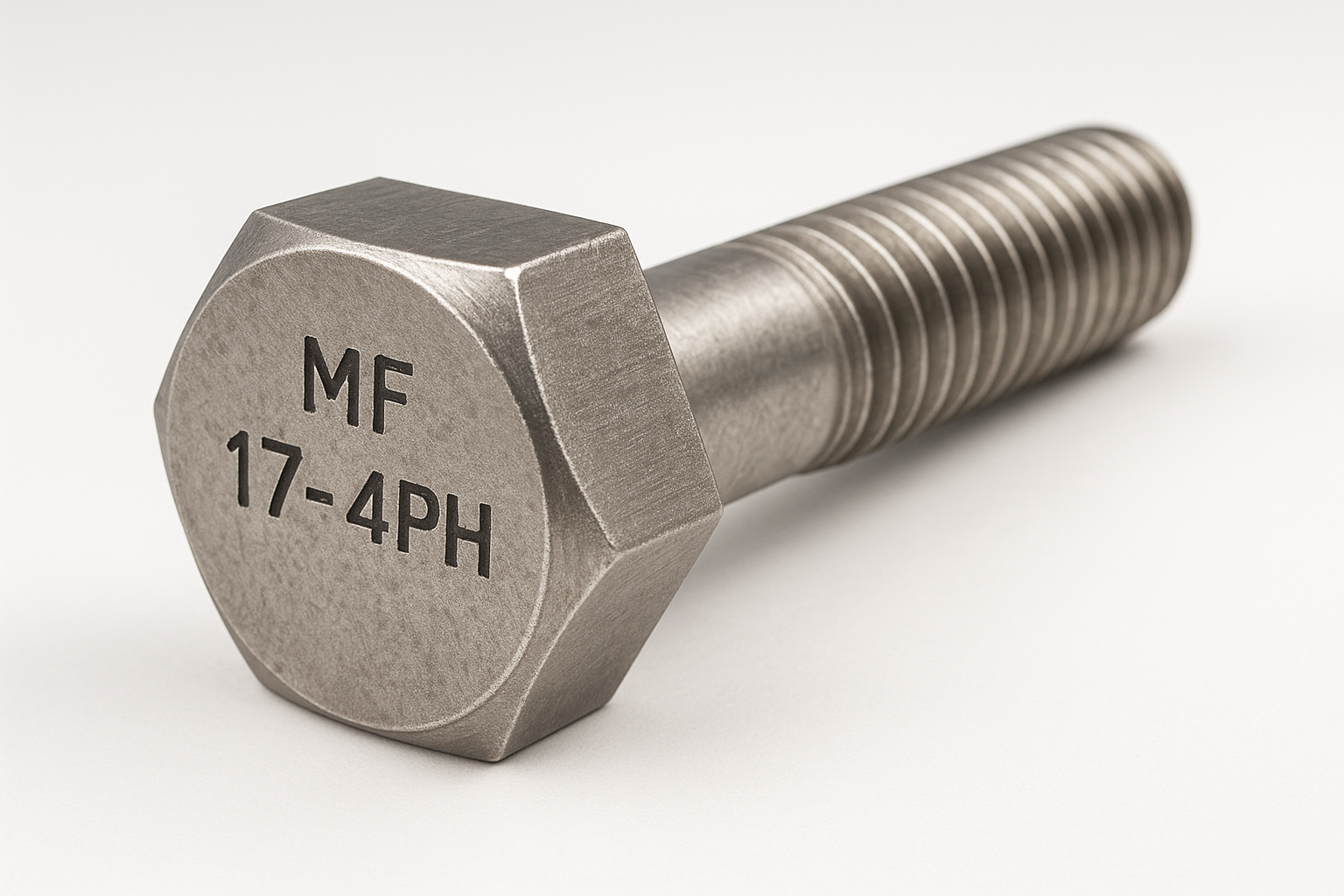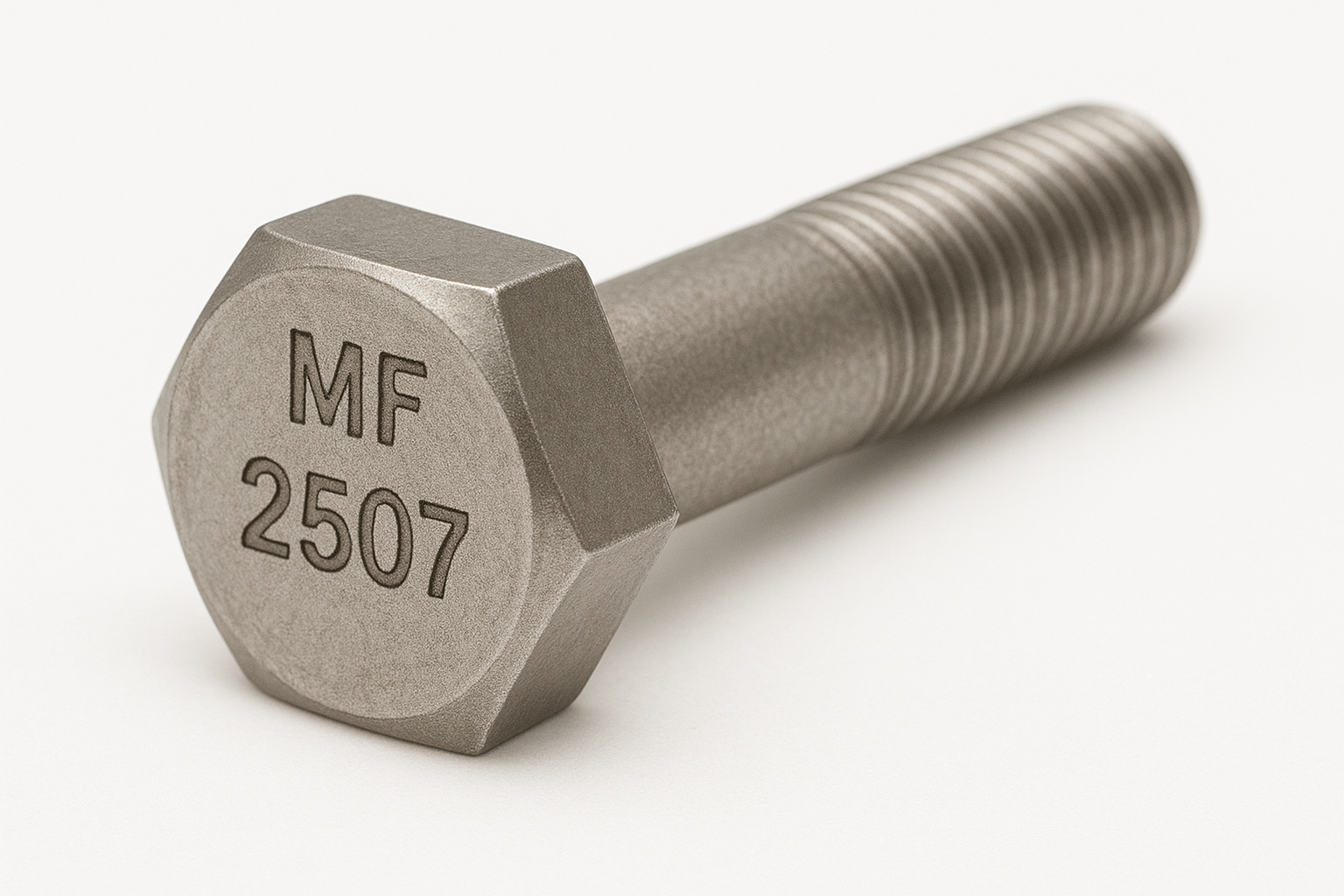What is 904L stainless steel and why it is chosen
Stainless steel 904L (UNS N08904 or 1.4539) is a highly alloyed austenitic alloy with a nickel content of more than 23% and molybdenum around 4-5%. This composition makes it particularly resistant to:
- Uniform corrosion in acidic environments
- Interstitial corrosion and pitting in the presence of chlorides
- Live corrosion, typical of systems subjected to constant pressure
Because of these properties, the use of 904L is the preferred technical choice when it is necessary to combine corrosion resistance and mechanical strength in severe environments.
Direct experience and real-world uses of the Bolt 904L
Our experience in supplying hardware in 904L has enabled us to collaborate with leading companies in the fields:
- Chemical and petrochemical: reaction tanks, distillation columns, and exchangers in contact with strong acids
- Marine and offshore: structural and anchor components exposed to salt water and salt mists
- Energy and thermal power plants: turbines and condensers where acid condensate corrosion is a real risk
- Food and pharmaceutical: production lines that require stainless, hygienic materials that meet sanitary standards
Our customers choose fasteners made of 904L for one very simple reason: it works. Even after years of use, the fasteners maintain structural integrity and reliability.
Regulatory compliance and certified traceability
Every 904L fastener system that we manufacture and then market complies with major international standards. Among the most relevant are:
- ASTM B649 – specific for austenitic alloys such as 904L
- ISO 3506-1 – mechanical requirements for stainless steel screws and bolts
- W. 1.4539
Each product comes with complete documentation and 100% guaranteed traceability, in line with the standards required by the most demanding multinational companies.
Competitive advantages of 904L fastening systems
Choosing 904L stainless steel bolts means achieving real benefits in the life cycle of the plant:
- Long service life: less wear and tear, fewer replacements, reduced plant downtime
- Increased safety: reduced risk of failure in chemically aggressive environments
- Environmental compatibility: fully recyclable, low-impact steel
- Long-term savings: lower total cost due to greater durability



